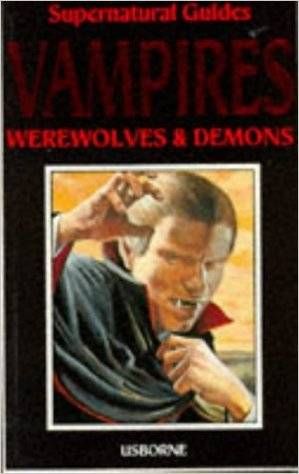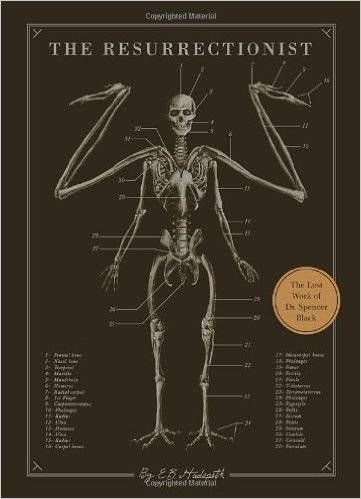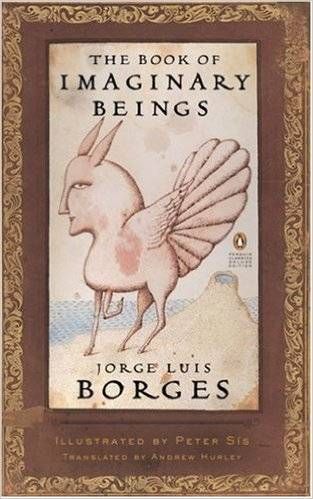
Excellent Books About Monsters
This is a guest post from Alex Laffer. Writer, editor and researcher Alex Laffer lives in a small flat in London that he is rapidly over-filling with books. He is interested in literary empathy and the way readers talk about fictional characters, and he loves reading about strange worlds – real and imagined.
As a child, I always loved monsters. I used to watch old Ray Harryhausen films – I’m sure my parents still have a worn-out VHS of Jason and the Argonauts stashed away somewhere – and I read everything I could on Greek myths and legends, learning about one-hundred-eyed giants and flesh eating horses way before I should have. These strange creatures fascinated me, clawing their way out of the pages into my imagination. As I grew older, what began to interest me were the worlds and imaginations these monsters emerged from – what they told us about the people who imagined them, and our own relationship to the strange, the grotesque and the alien.
Don’t get me wrong though, I still love a great monster.
What you find here is a potted selection of my favourite books on monsters, although I’ve left off some of the more obvious…Dracula who?
 The Usborne Supernatural Guide: Vampires, Werewolves and Demons
The Usborne Supernatural Guide: Vampires, Werewolves and Demons
A classic for anyone born in the ’80s. For a children’s book the illustrations, all dug-up coffins and dripping fangs, are terrifying, but where else could I have learned about the Kappa – Japanese cucumber eating turtle demons – or Scottish Red Caps, who dipped their hats in the blood of their victims. I’m particularly fond of the rather cute sounding Werebear.
This book gave me my first real insight that for our predecessors, monsters weren’t just something in the pages of a book, but lived in the world around them. Mixed in with the folklore on vampires and werewolves were historical accounts, such as the feral child Jean Grenier. Unfortunately for some, to be different was to be monstrous.
Out of the Pit by Steve Jackson and Ian Livingstone
Anyone remember the old Fighting Fantasy “choose your own” adventure books? You’d navigate the story, making decisions that directed you to different pages. Their popularity waned with the rise in computer games, but they are still great fun. The books were populated by myriads of different monsters, with a good selection collected in Out of the Pit. I’m including this book for one particularly distressing creation that used to keep me awake at night: The Flayer. Essentially an armless man with an octopus for a head, I still find this unnatural melding of human and animal strangely disturbing.
 The Resurrectionist (The Lost Work of Dr. Spencer Black) (The Lost Work of Dr. Spencer Black) by E.B. Hudspeth
The Resurrectionist (The Lost Work of Dr. Spencer Black) (The Lost Work of Dr. Spencer Black) by E.B. Hudspeth
Part lost diary, part beautifully illustrated anatomical text, this book makes a perfect gift for anyone who has wondered what the skeleton and musculature of a minotaur or chimera looks like. Imagined as evolutionary ancestors to ourselves, different mythical creatures are rendered in gorgeous detail, taxonomically classified and described. Ascribed to a fictional madman, but actually the work of a gifted artist with a macabre imagination.
The New Crobuzon trilogy (Perdido Street Station, The Scar, Iron Council) by China Mieville
In his New Crobuzon trilogy Mieville provides us with one of the most fully realised worlds in speculative fiction, populated with a host of bizarre creatures interacting in believable societies and ecosystems. Mieville is a master in imagining how physiognomy and environment might influence thought, such as the Weavers, the ultimate aesthetes, who put their own twisted artistic considerations above all else, and speak in free verse… oh and they’re multi-dimensional giant spiders!
The different ways of presenting and understanding thought are tied into Mieville’s own exploration of community, society and politics.
 The Book of Imaginary Beings by Jorge Luis Borges
The Book of Imaginary Beings by Jorge Luis Borges
Interesting fact: the word Gnome comes from the Greek gnosis meaning knowledge, because, according to Paracelcus, they knew where precious metals were located.
Borges’ book is a must for anyone interested in the strange and mythical creatures that have populated the imaginations of those who have come before us. Borges combines his usual imaginative capacity and erudition, presenting the reader with a miscellany of beasts from mythology and literature, often finding connections across disparate sources. This is a fascinating book that plays with the concepts of fiction and knowledge – like much of Borges’ work. Familiar creatures are covered but also more obscure fare. Have you heard of the sow harnessed with chains from Argentina? Or the monkey of the inkpot?
The Book of Barely Imagined Beings by Caspar Henderson
And if you think fiction is full of weird and wonderful creatures, then I would urge you to check out Caspar Henderson’s book and blog of barely imagined beings. Drawing from science, literature and mythology, he examines some of the stranger creatures that share our world and our relationship to them. Could the goblin shark really be an inspiration for the unicorn as Henderson suggests?
This list barely scratches the surface. Monsters continue to be fertile ground in fiction to explore the other and ourselves. I could talk about Umberto Eco’s tale of the medieval trickster Baudolino and his journey to the land of Prester John, populated with creatures straight out of a medieval bestiary, or Patrick Ness’s sensitive depiction of a boy struggling to cope with his mother’s cancer in A Monster Calls, to name just two more.
I’m always looking to discover more strange beasts, or new stories about familiar ones, so let me know what you think I should read next.










